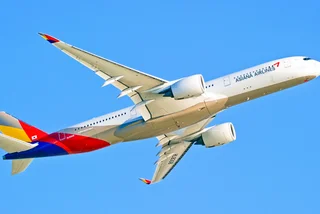Prague’s Václav Havel Airport has announced that it's preparing for a record-breaking summer season with 165 destinations on offer, up from 115 in the winter months. The airport expects more than 18 million passengers to pass through its gates in 2025, but with increased flights comes the likelihood of delays. Passengers should brace for potential disruptions during the peak season, says airport head Jiří Pos.
Delays likely despite preparations
While the airport is ramping up staff and capacity in anticipation of high traffic, the surge in passenger numbers could still result in delays, particularly during busy periods.
Last year, baggage handling issues led to widespread frustration, and while the airport is taking steps to prevent similar problems this year, delays remain a possibility. Expect longer waits at check-in and security, especially during peak times.
New routes and more flights
Travelers will benefit from new long-haul routes, including a direct flight to Toronto with Air Canada and increased connections to Abu Dhabi with Etihad Airways. In addition, Asiana Airlines is planning to strengthen flights on the route to Seoul.
Frequencies on more than 40 European routes will increase, with additional flights to popular summer destinations like Greece, Italy, and Turkey. Prague will also fly to Vilnius with Air Baltic and to Zagreb with Croatia Airlines. Larger aircraft, including the Airbus A380, will be deployed on select routes, such as Dubai, to accommodate higher demand.
Keep your liquids in luggage
In response to growing passenger numbers, the airport is introducing new security technology, says Pos. Six CT X-ray machines will be added to Terminal 2 by the start of the summer season, which will allow passengers to keep electronics and liquids in their carry-on bags while speeding up security checks. This new equipment is part of a broader push to improve efficiency and security at the airport.
Czech Air Traffic Control (ATC) dispatchers should also relieve the burden on neighboring states. According to ATC, problems with delays can arise, for example, on routes from Germany, Austria, Hungary or Balkan countries, where they are faced with overloaded traffic.
With record traffic expected, it’s crucial for travelers to plan ahead. The airport is taking steps to mitigate delays, but higher passenger volumes and more frequent flights mean that arriving early and staying updated on your flight’s status is essential.












 Reading time: 2 minutes
Reading time: 2 minutes 



















